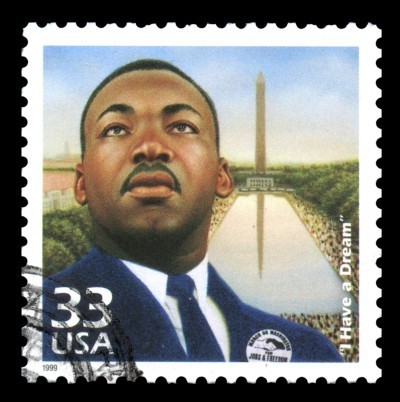A Note On Black History Month
Follow Us On Facebook:
Categories

The Greensboro Four. February 1, 1960, Greensboro, NC – 4 black teens sat at a “whites only” counter at Woolworth’s. The waitress refused to serve them, but they were not there simply for what Woolworth’s served. Franklin McCain, Joseph McNeil, Ezell Blair Jr. and David Richmondwere sat there in protest of the unfair treatment of blacks, not only in Greensboro, but other parts of the country. For six months, every day at lunch, they would sit at the counter, in peaceful protest, until finally, they were served. Six years before, Brown vs. Board of Education made the segregation of black and white students illegal. The peaceful protest attracted attention, and within 2 months, inspired by the Greensboro Four, sit-ins were popping up in 54 cities in 9 other states.
Ernie Davis. NFL buffs may recognize the name, but most people will not. Ernie Davis was the first African-American Heisman Trophy winner, and the first African-American drafted into the NFL. Ernie Davis passed away in 1963 and he accomplished all of this before he died of leukemia at the age of 23.
Dorothy Height. Dorothy Height not only fought for the rights of African-Americans, but for women. For 40 years, she was the president of the National Council of Negro Women. She started as a New York City Welfare Department caseworker, but at the age of 25, she started fighting for civil rights. She created “Wednesdays in Mississippi” in an effort to create a dialogue of understanding, bringing black and white women together. People began to take notice, and not just ordinary people – Eleanor Roosevelt and President Dwight D. Eisenhower both consulted her.
Madam C.J. Walker. Madam C.J. Walker was ahead of her time; she was one of very few women entrepreneurs, creating hair care products for African-American women. She holds the distinct honor of being the first female self-made millionaire.
Carter G. Woodson. Often referred to as the “Father of Black History”, Carter Woodson was a historian, writer, journalist and founder of the Association of the Study of African American Life and History. In February 1926, he began the “Negro History Week” which grew into Black History Month. The son of former slaves, Carter Woodson taught himself the fundamental school subjects, due to the scarcity of public schooling. In order to attend secondary school, he worked as a coal miner and was only able to devote a couple of months a year to learning. He was the second African-American to earn a doctorate, graduating from Harvard University. From humble beginnings, he pushed educational barriers aside.
“If you can control a man’s thinking, you don’t have to worry about his actions. If you can determine what a man thinks you do not have to worry about what he will do. If you can make a man believe that he is inferior, you don’t have to compel him to seek an inferior status, he will do so without being told and if you can make a man believe that he is justly an outcast, you don’t have to order him to the back door, he will go to the back door on his own and if there is no back door, the very nature of the man will demand that you build one.” – Carter G. Woodson
We have made great strides since the 1950’s, but it is not far enough. American history needs to include all history, no matter what color, what size, what race it comes from. As Attorney General Eric Holder said “Though this nation has proudly thought of itself as an ethnic melting pot, in things racial, we have always been and we — I believe continue to be in too many ways essentially a nation of cowards…certain subjects are off-limits and that to explore them risks at best embarrassment and at worst the questioning of one's character.” Race relations should not be “taboo” or “off-limits”. Especially now.
Written by: Allyson Johns

 February 11, 2015
February 11, 2015 










No comments yet... Be the first to leave a reply!